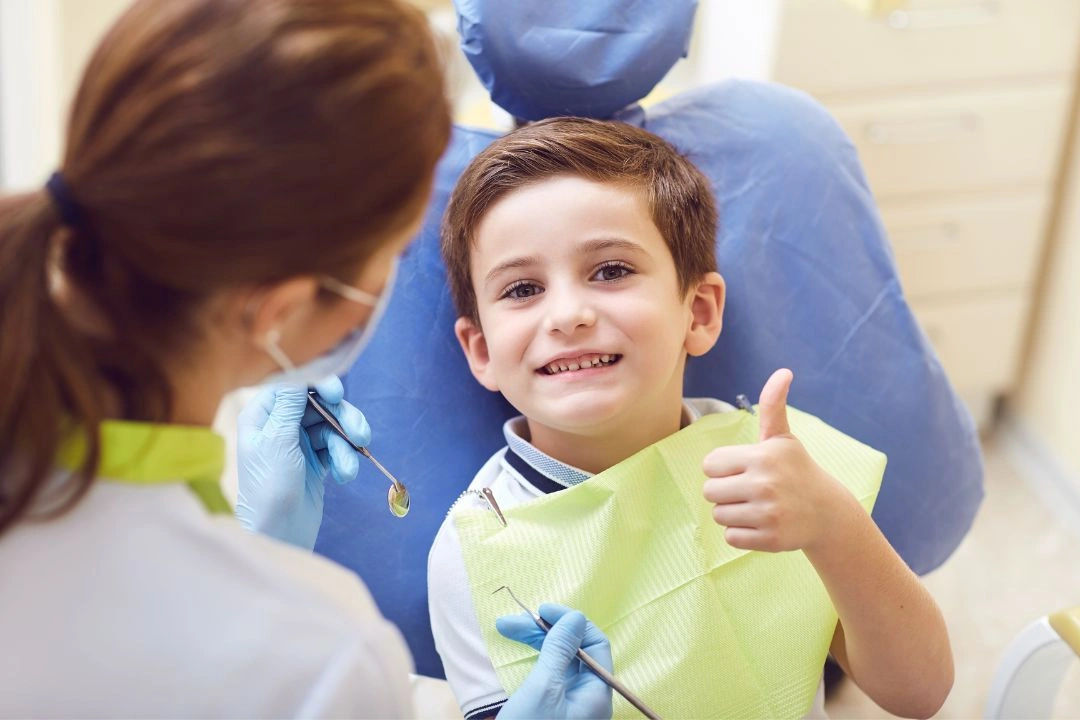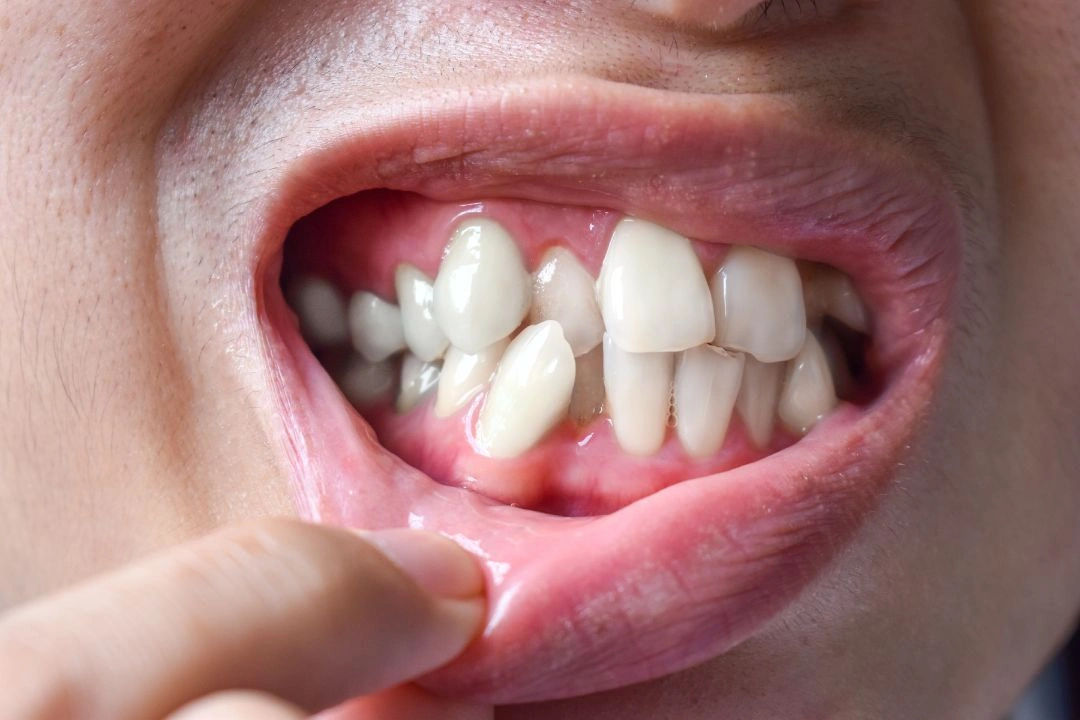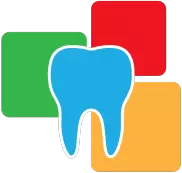Common Dental Issues in Children and How a Pediatric Dentist Can Help

Oral health is essential for children's well-being. Just like adults, children may have a wide range of dental issues, and some of these may have significant impacts on growth and development. This blog post will talk about some of the common dental issues in children and how a pediatric dentist can help solve them effectively.
1. Tooth Decay (Cavities)
Tooth decay, or cavities, is one of the most common dental problems in children. It happens when acids are produced by bacteria in the mouth that wear away the tooth enamel. The risk of developing cavities is higher when there is frequent snacking on sugary foods, poor oral hygiene, and insufficient fluoride intake.

A children’s dentist near me can:
a. Diagnosis and treatment of cavities: They can conduct proper examination, take X-rays, and advise appropriate treatments such as fillings, crowns, or even root canals in severe cases.
b. Prevention of cavities: They can offer good advice on how to brush and floss properly, suggest fluoride treatments, and discuss dietary changes to avoid the formation of cavities.
c. Educate parents: Childrens dentists can educate parents on the importance of early and regular dental checkups and give them guidelines for developing healthy oral hygiene habits in their children.
2. Teething Pain
Teething is a natural process in which a baby's first teeth push through the gums. Though this is an exciting moment for parents, it can be a difficult period for both the parents and babies, marked with discomfort, irritability, and excessive drooling.
A kid’s dentist near me can:
a. Provide comfort measures: A kids dentist can suggest safe, effective ways to ease teething pain: gentle massage, cool teething rings, and over-the-counter pain relievers (where appropriate).
b. Ruling out other factors: Sometimes, what seems like teething symptoms can actually be other conditions, such as an ear infection. A childrens dentist can examine your child to determine if there may be an underlying problem.
c. Guidance: They can offer much-needed advice on how to handle teething pain and make sure your baby is healthy all around during this period.
3. Thumb Sucking and Pacifier Use
Thumb sucking and pacifier use are common behaviors in young children. Although these can be comforting, when used for extended periods, dental problems may be experienced, like crooked teeth, an open bite, or speaking difficulties.
A pediatric dentist can:
a. Monitor the situation: They can monitor your child's oral development and assess the potential impact of these habits.
b. Offer gentle guidance: They can provide strategies to help your child gradually reduce or discontinue these habits, such as positive reinforcement and age-appropriate rewards.
c. Address potential consequences: If necessary, they can recommend orthodontic interventions to correct any dental misalignments caused by thumb sucking or pacifier use.
4. Misalignment or Crooked Teeth
Misaligned or crooked teeth, or malocclusion, can make a child look unattractive, bite poorly, and have speech difficulties.

A children’s dentist can:
a. Early detection and intervention: They can identify potential orthodontic issues early on and recommend appropriate interventions, such as early interceptive orthodontics or palatal expanders.
b. Referrals to specialists: They can refer your child to an orthodontist for further evaluation and treatment planning.
c. Assess underlying causation: The can evaluate what could be driving misalignment including habits like thumbsucking, or even tongue-thrusting along with jaw conditions.
5. Primary Teeth Losses Before Their Prescribed Time End
The untimely removal of primary dentition can have great effects on children's oral growth in the following forms:
- Situations Shifting Neighbouring Teeth Position: The permanent loss of any primary tooth displaces the adjacent structures as they succumb to change due to misplacement.
- Delayed eruption of permanent teeth: Loss of a baby tooth can prevent the eruption of the permanent tooth underneath.
- Speech difficulties: The loss of some baby teeth can affect a child's speech.

A pediatric dentist can:
a. Avoid further complications: They can provide recommendations for space maintainers to avoid the shifting of the adjacent teeth and ensure proper alignment of the permanent teeth.
b. Observe the case: They can keep an eye on the eruption of permanent teeth and can rectify the issues as soon as they appear.
c. Guidance for oral hygiene: They can advise that maintaining good oral hygiene can avoid more loss of teeth.
6. Gum Disease
Gum disease, although common among adults, also affects children. It is a disease that occurs when there is infection of the gums that may cause redness, bleeding, and bone loss.
A local pediatric dentist near me can:
a. Provide an early diagnosis and treatment: They can start with the determination of gum diseases, and prescribe relevant treatments- for example professional cleanings or scaling.
b. Provide preventive education: Children and their parents can receive appropriate education for maintaining good oral hygiene to avoid gum disease.
c. Evaluate underlying factors: They have the ability to analyze the underlaying factor, such as bad oral habits, some conditions of the patient or medications.
7. Halitosis
Bad breath among children may arise from various factors, such as poor oral hygiene, dryness of the mouth, sinus infection, or serious underlying medical conditions.
A paediatric dentist can:
a. Identify the source: She shall trace the reason behind the condition and recommend relevant treatment.
b. Assist in improving the oral hygiene: She can show the children ways of proper brushing, flossing, and tongue cleaning techniques.
They can send your child to other specialists if needed, like an ear, nose, and throat doctor.
8. Dental Trauma
Dental trauma, such as chipped, cracked, or knocked-out teeth, can happen due to falls, sports injuries, or accidents.
A best pediatric dentist near me can:
a. Emergency care: They can give immediate emergency care for dental trauma, such as stabilizing a knocked-out tooth or applying a temporary filling to a chipped tooth.
b. Prevent further complications: They can give the right treatment to prevent infection, nerve damage, or further tooth loss.
c. Cosmetic issues: They can deal with any cosmetic issues associated with dental trauma, such as discoloration or misalignment.
Conclusion
Regular visits to a pediatric dentist are essential in keeping your child's oral health at its best and preventing potential dental problems. Addressing dental issues early on ensures that your child's teeth and gums remain healthy and strong, thus contributing to his overall well-being. If you are searching for a childrens dental care provider, consider scheduling a consultation with a qualified kids dentist near you.
- A-3, Natraj Nagar near Imli Phatak, Jaipur-302015
- +91 9945826926
- contact@amddentalclinic.com

Top 5 Reasons Your Tooth Pain Shouldn’t Be Ignored
Discover the top 5 reasons to address tooth pain promptly. Visit AMD Dental Clinic, Jaipur’s best dental clinic, for expert care from best dentist in Jaipur, Dr. Mili Gupta today!

Best Time to Get Teeth Whitening Done in Jaipur – Why Monsoon Works
Discover why monsoon is ideal for teeth whitening treatment in Jaipur! Learn about laser teeth whitening & teeth bleaching at AMD Dental Clinic. Visit us today!

How Poor Dental Work Can Ruin Your Smile And Your Health
Let us know how a bad dental treatment can impact your teeth, smile & health. Learn expert tips from our best dentist at AMD Dental Clinic, the best dental clinic in Jaipur.

